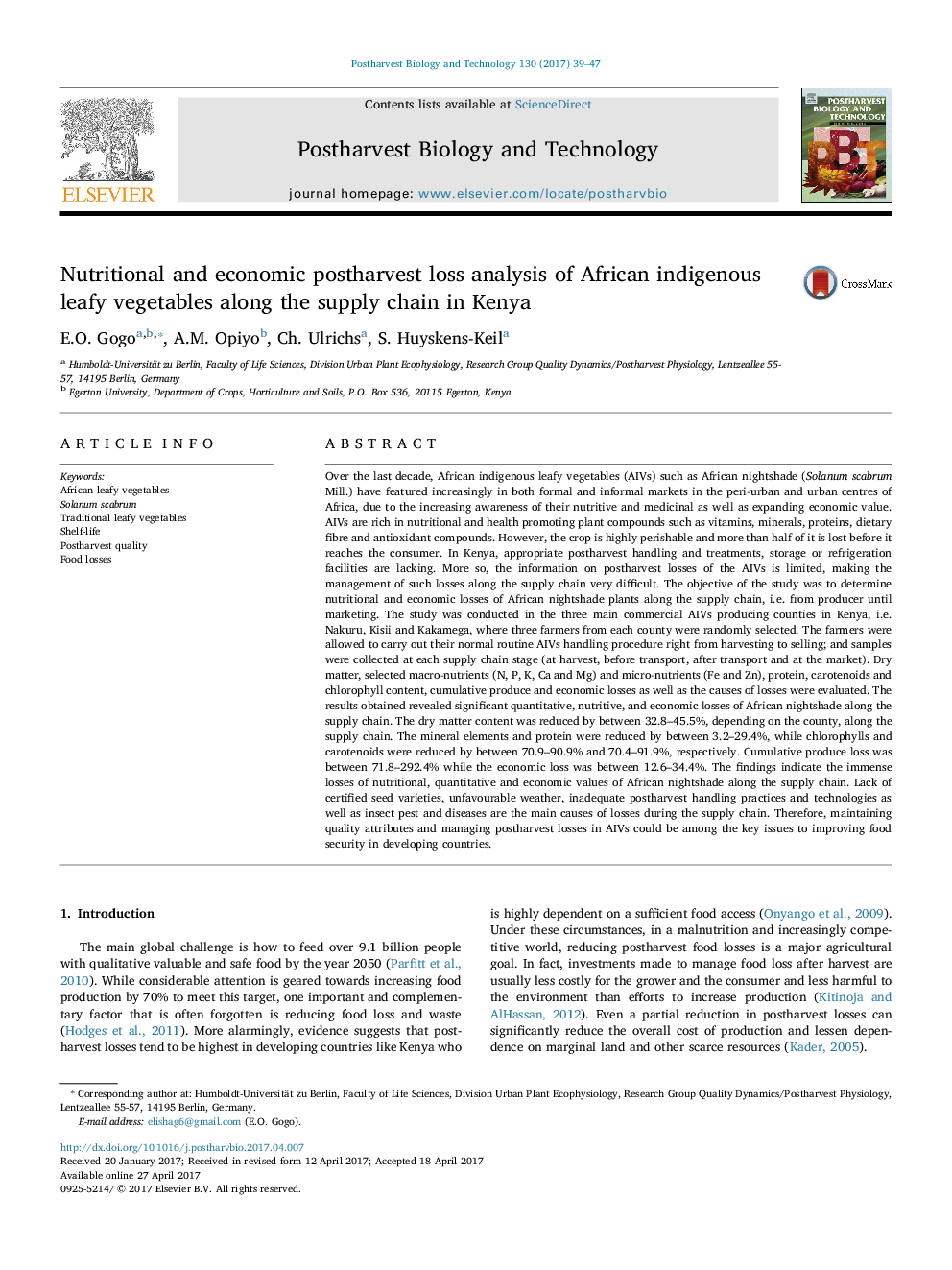Over the last decade, African indigenous leafy vegetables (AIVs) such as African nightshade (Solanum scabrum Mill.) have featured increasingly in both formal and informal markets in the peri-urban and urban centres of Africa, due to the increasing awareness of their nutritive and medicinal as well as expanding economic value. AIVs are rich in nutritional and health promoting plant compounds such as vitamins, minerals, proteins, dietary fibre and antioxidant compounds. However, the crop is highly perishable and more than half of it is lost before it reaches the consumer. In Kenya, appropriate postharvest handling and treatments, storage or refrigeration facilities are lacking. More so, the information on postharvest losses of the AIVs is limited, making the management of such losses along the supply chain very difficult. The objective of the study was to determine nutritional and economic losses of African nightshade plants along the supply chain, i.e. from producer until marketing. The study was conducted in the three main commercial AIVs producing counties in Kenya, i.e. Nakuru, Kisii and Kakamega, where three farmers from each county were randomly selected. The farmers were allowed to carry out their normal routine AIVs handling procedure right from harvesting to selling; and samples were collected at each supply chain stage (at harvest, before transport, after transport and at the market). Dry matter, selected macro-nutrients (N, P, K, Ca and Mg) and micro-nutrients (Fe and Zn), protein, carotenoids and chlorophyll content, cumulative produce and economic losses as well as the causes of losses were evaluated. The results obtained revealed significant quantitative, nutritive, and economic losses of African nightshade along the supply chain. The dry matter content was reduced by between 32.8â45.5%, depending on the county, along the supply chain. The mineral elements and protein were reduced by between 3.2â29.4%, while chlorophylls and carotenoids were reduced by between 70.9â90.9% and 70.4â91.9%, respectively. Cumulative produce loss was between 71.8â292.4% while the economic loss was between 12.6â34.4%. The findings indicate the immense losses of nutritional, quantitative and economic values of African nightshade along the supply chain. Lack of certified seed varieties, unfavourable weather, inadequate postharvest handling practices and technologies as well as insect pest and diseases are the main causes of losses during the supply chain. Therefore, maintaining quality attributes and managing postharvest losses in AIVs could be among the key issues to improving food security in developing countries.


